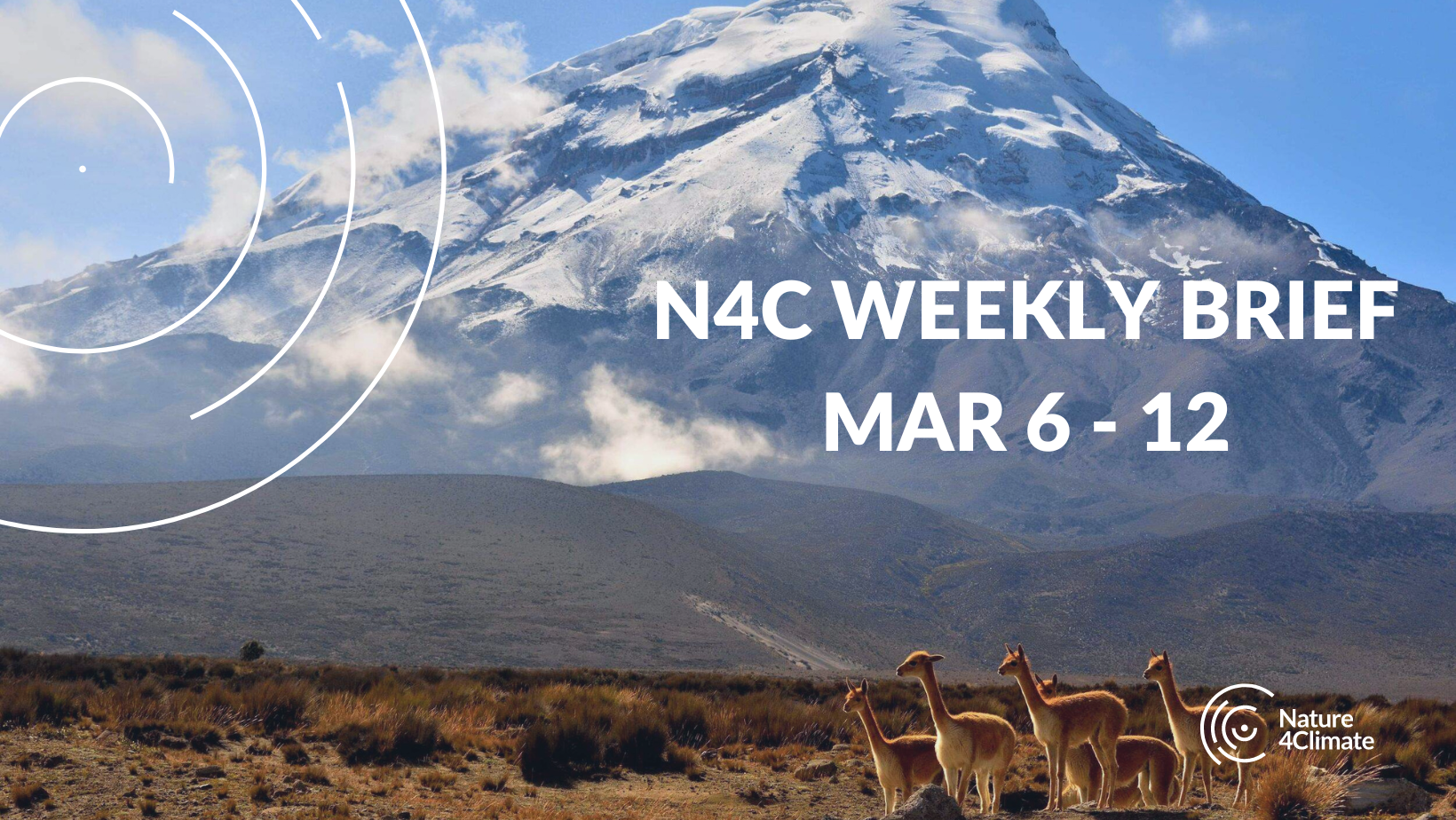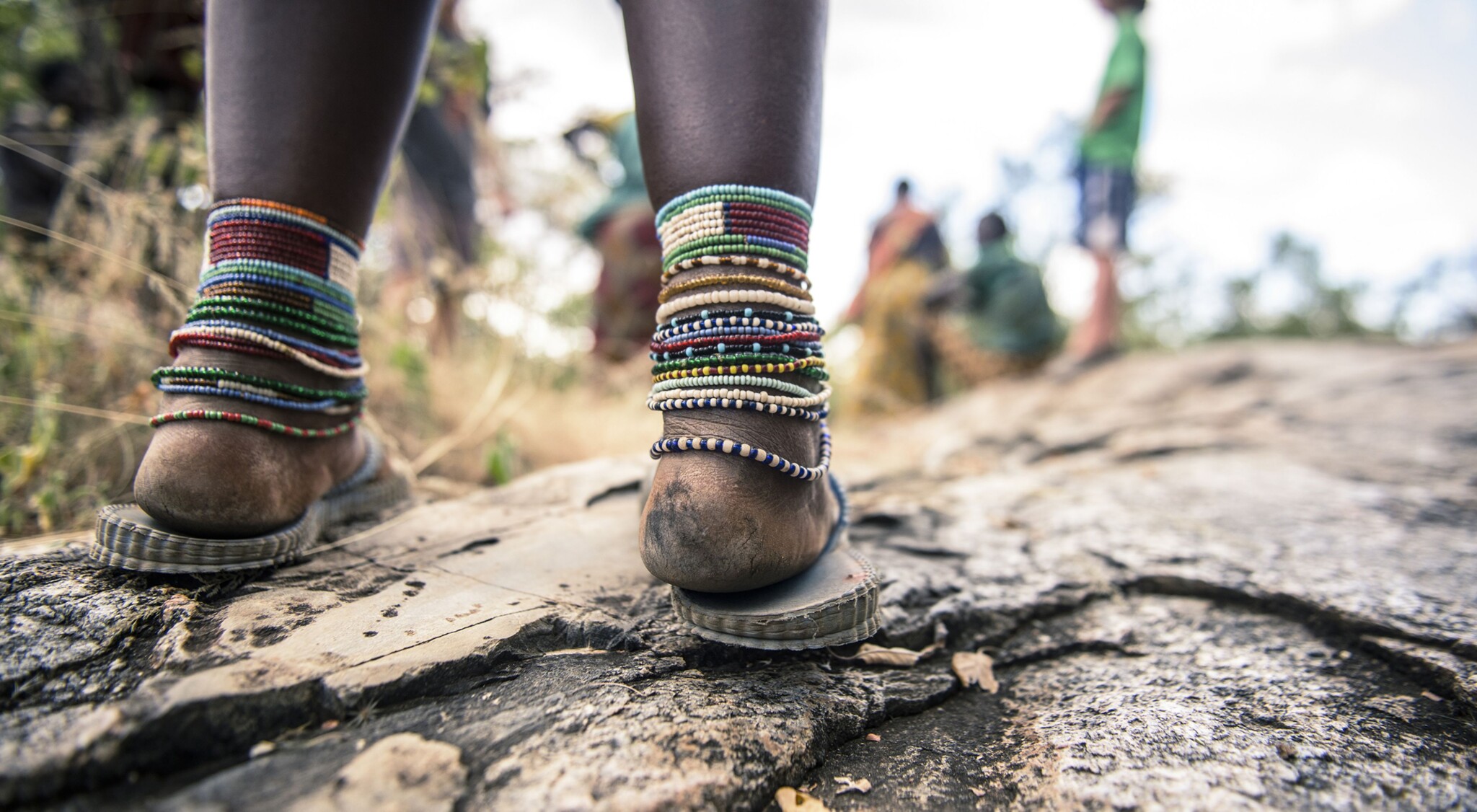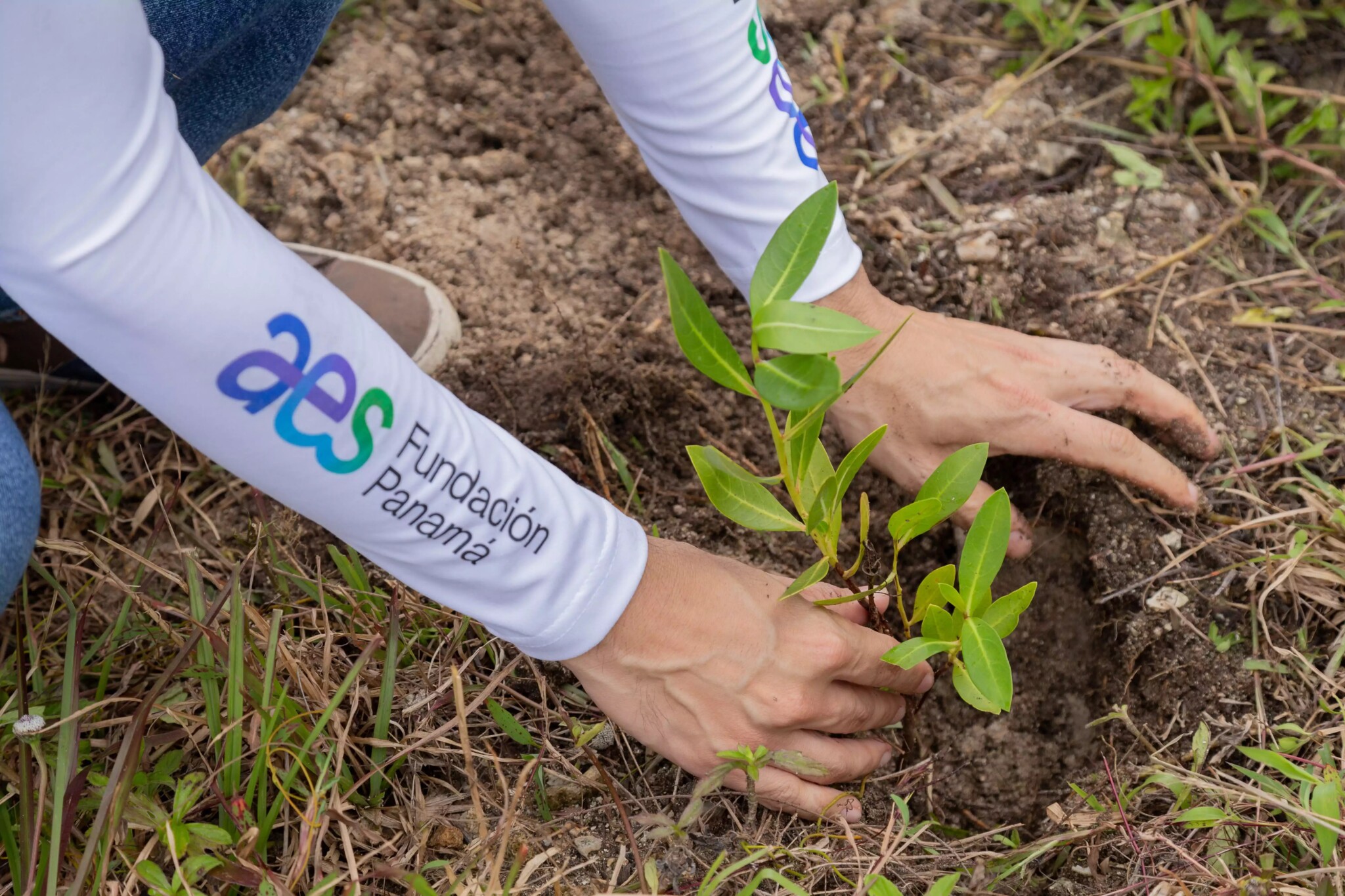
At the base of Chimborazo, the volcano closest to the sun, alpacas roam freely in herds, braving the harsh cold and winds typical of the equatorial mornings in October. Copyright ©John Obregón/TNC Photo Contest 2023.
Read more
Related articles for further reading
FEATURED NEWS
Deforestation in Brazil’s Amazon down 30% in February
Reuters, 8 March
Reuters reports Brazil’s space research agency INPE preliminary data showing deforestation in Brazil’s Amazon rainforest fell 30 percent in 2024 compared to 2023. However, February was marked by a sharp spike in wildfires in Brazil, especially in the northernmost state of Roraima, threatening Indigenous Yanomami communities. Mongabay reviews an often overlooked area of Brazil, the Pampa grasslands in the southern tip of the country, which has lost a third of its natural vegetation to agricultural expansion and forestry plantations. The Cool Down covers a report that identifies the banks financing the agricultural activities converting the biodiverse and carbon rich Brazilian Cerrado for cattle ranching.
In landmark deforestation case, WTO finds EU discriminated against palm oil in setting biofuel rules
Eco-Business, Samantha Ho, 12 March
Eco-Business reports that the World Trade Organization (WTO), in its first ruling on trade matters related to deforestation and carbon emissions, found fault with the EU’s approach to deny palm oil as an acceptable source of renewable energy, because the process constituted “arbitrary or unjustifiable discrimination” against Malaysia. Financial Times covers the EU’s decision to delay strict enforcement of its deforestation regulation banning imports of commodities tied to deforestation to allow trading partners more time to adapt to the new rules.
EU Parliament Agrees to Ban Unverified Green Product Claims
ESG Today, Mark Segal, 12 March
ESG Today reports that the European Parliament has approved a series of rules aimed at preventing greenwashing in corporate claims with new rules on how carbon market credits could be applied to sustainability claims. The new rules will ban sustainability claims like net-zero if the claim is based solely on purchases of carbon offsets, but allows for the inclusion of carbon credits in advertisements if internal emission reduction goals are met and the credits are certified as meeting high-integrity standards. Bloomberg reviews how Microsoft and other companies are pioneering ‘carbon insetting’ accounting practices to understand their corporate emissions and the scale of carbon credits they need to purchase to address their climate contributions, as well as influence future business strategies to avoid future emissions. Carbon Pulse covers a report from Abatable that finds only 6 percent of historical carbon credits issued in the voluntary market may have a strong chance of receiving a high-integrity ranking from the Integrity Council for Voluntary Carbon Markets (ICVCM), with the tag potentially a more stringent marker of quality than CORSIA-eligible credits, according to market analysts. Carbon Pulse also shares Voluntary Carbon Markets Integrity Initiative (VCMI) plans to road test its flexibility claim idea with companies over the next seven to eight months, despite it clashing with Science Based Targets initiative rules.
SEC Scales Back New Pollution-Disclosure Rules for Companies
Bloomberg, Lydia Beyoud and Zahra Hirji, 6 March
Bloomberg covers the publications of the US Securities and Exchange Commission’s new corporate climate disclosure rule that was weakened from original versions to remove requirements to disclose supply chain emissions. Orbitas, in a report released last year, found that investors face $7-$115 billion in risks from the emissions caused by deforestation in major agricultural commodity supply chains. The removal of supply chain emissions (commonly known as Scope 3 emissions) from reporting requirements has left climate experts and sustainable finance experts disappointed as the rule is intended to provide investors data to avoid unnecessary financial risks. Reuters reports that the EU Corporate Sustainability Due Diligence Directive (CSDD) rules that would require big companies to disclose whether their supply chains harm the environment or employ child labor, has been voted down by Germany and several other countries. Belgium’s delegation to the EU has proposed diluting and a longer phase-in for the CSDD to try and keep the package of corporate responsibility rules moving forward.
Report calls for agroecological rethink of Africa’s food amid $61b industrial plan
Mongabay, Aimee Gabay, 7 March
Mongabay covers a new report from the Alliance for Food Sovereignty in Africa (AFSA) that finds investment plans from the African Development Bank may potentially marginalize small-scale farmers and harm biodiversity with billions to be invested in the industrialization of agriculture across the African content. The AFSA report highlights that a focus instead on agroecology and food sovereignty, emphasizing the importance of sustainable agriculture and the empowerment of small-scale farmers, is a better approach to meet goals for improving agriculture across 40 African countries.
SPOTLIGHT – Presenting naturebase at the Accelerating Nature- Based Solutions Conference
Are you missing essential research to help you plan, fund, and implement climate projects? We attended the Accelerating NbS Conference in Zambia to discuss why successful Natural Climate Solutions require effective planning supported by robust science, data, and mapping. To support your climate projects with these elements, we launched naturebase.org: a free, scientific data platform that helps you unlock nature’s potential. This video, made in partnership with the Youth Bridge Foundation, summarizes some of the feedback we heard on the ground.
SPOTLIGHT – How Gender-Based Violence Affects Conservation
On the eve of International Women’s Day last week, The Nature Conservancy published an article addressing the need for more effort to be directed towards ending gender inequalities and gender-based violence within the nature conservation and restoration community. Research shows that despite comprising more than half the world’s population, women are routinely excluded from decisions around natural resource management. This article shares three ways gender-based violence is intertwined with efforts to protect nature and how to manage this reality by providing the support and empowerment people need.
*Content note: This article discusses gender-based violence, including domestic abuse.
READ MORE
FOR YOUR INFORMATION
IUCN releases a report sharing guidance to advance area-based conservation efforts in Asia, providing five key recommendations to guide countries across Asia.
UNEP publishes its 2023 annual report, recapping its work on climate change and sustainable management.
WRI shares a new article on the role biodiversity credits can play in financing conservation efforts.
WBCSD launches its Built Environment Market Transformation Action Agenda during the first Buildings and Climate Global Forum held in Paris.
Clean Cooking Alliance publishes its 2023 annual report, showcasing the organization’s progress in supporting governments, building markets, and expanding the ecosystem to help families around the world access clean cooking solutions.
Clean Cooking Alliance announces it is partnering with the youth-led restoration initiative DUAPA and Nature4Climate to accelerate clean cooking efforts in five African countries: Ghana, Liberia, Kenya, Uganda, and Nigeria.
Architecture for REDD+ Transactions (ART) shares that is has accepted further submissions from Guyana and following successful validation and verification its Board may approve the issuance of serialized TREES Credits to Guyana. ART also notes that 20 jurisdictions are now listed with ART following the submission of TREES Concepts, the first step to register a jurisdictional REDD+ program under ART.
Toucan announces that CHAR, the first liquid market for biochar credits, is now live, providing infrastructure for the automated, on-demand buying and selling of biochar carbon credits. It aggregates verified CO2 Removal Certificates issued by Puro.earth (“CORCs”) on one single platform as CHAR.
USDA highlights the second annual National Biobased Products Day, a celebration to raise public awareness of biobased products, their benefits and their contributions to the U.S. economy and rural communities. Biobased products offer opportunities for more revenue streams for small and mid-sized farmers while giving consumers more in-demand, clean options for everyday items.
Global Witness releases a new literature review detailing the connections between the EU’s biggest banks to forest-risk companies over the last few years.
Terra Global Capital publishes a report on how to deliver a just transition through nature-based solutions.
NBER shares a working paper estimating a supply curve for forest-based atmospheric CO₂ removal. The supply curve traces out the marginal cost of removing a metric ton of CO₂ as a function of total annual CO₂ removal, showing that over a billion tons of CO₂ can be removed annually via forestation at a cost below $45 per ton.
CASE STUDY
N4C is compiling an index of NBS case studies, together with an interactive map, to highlight action on the ground. Each week, we will be choosing a case study to present, to help give concrete examples of work being done to bring NBS theory into practice.
Livelihoods-NEWS Mangrove Restoration Project
WHERE: SUNDARBAN, WEST BENGAL, INDIA
TYPE OF NCS SOLUTION: ADAPT
The Sundarbans are an archipelago of islands that constitute the largest contiguous estuarine mangrove forest in the world. The project planted more than 16 million mangroves to strengthen the existing man-made embankments that protect the communities’ homes and farmlands from flooding and support local biodiversity. The mangroves further produce timber and increase food supply. In 2018, the project created the Badabon Harvest brand with a group of farmers to help them improve their revenues through livestock breeding, the commercialization of organic products, improvement of agricultural practices, and fish farming.
NUMBER OF THE WEEK – 28 MtCO2e/yr
The annual carbon dioxide emissions that could be avoided by avoiding forest conversion in Malaysia by 2050. Palm oil production has historically been a major driver of forest conversion in Malaysia, but recent years have seen significant decreases in this trend. Malaysia recently won a World Trade Organization ruling against the EU over rules to prevent palm oil biofuels from being classified as sustainable due to potential deforestation. See more details on the potential for natural climate solutions in N4C’s naturebase.
GOOD NEWS
University of Edinburgh kicks off net zero forest and peatland restoration scheme
The University of Edinburgh has begun work on what is thought to be one of the largest nature-based offset projects undertaken by a UK university, confirming plans to expand woodland and restore peatlands. The university will work with partners across Scotland to plant an estimated 2 million trees and restore at least 855 hectares of peatlands, the size of more than 1,200 football pitches. Over the next 50 years, the project is expected to remove 1 million tonnes of carbon dioxide from the atmosphere, equivalent to more than 9 million car journeys between Edinburgh and London.

